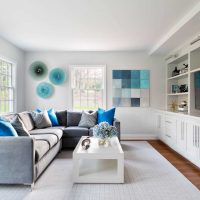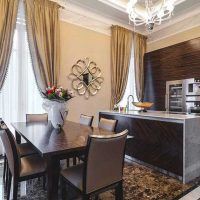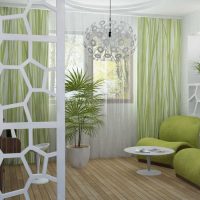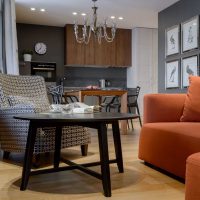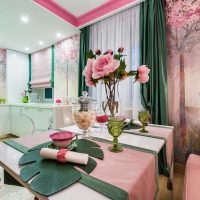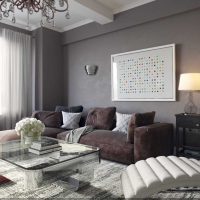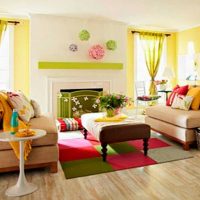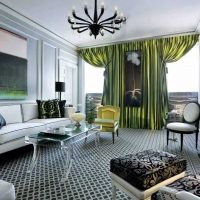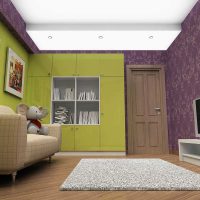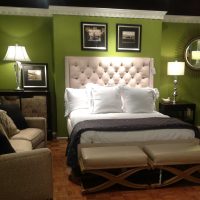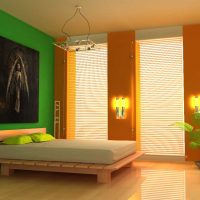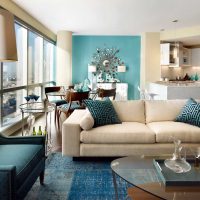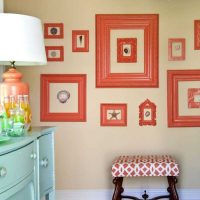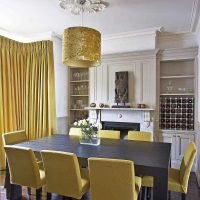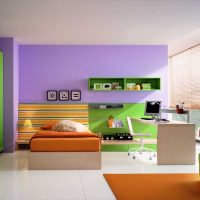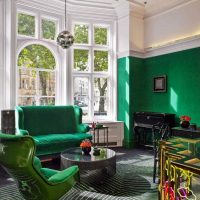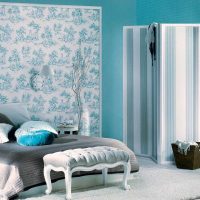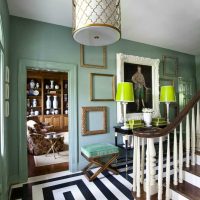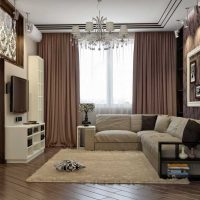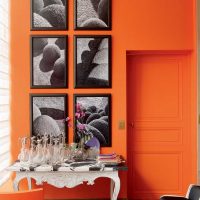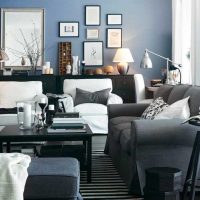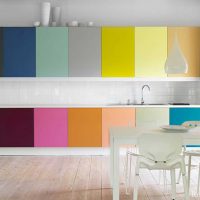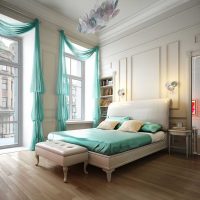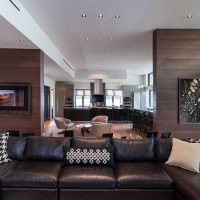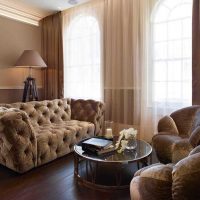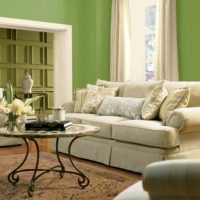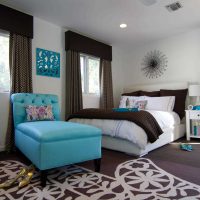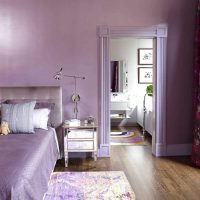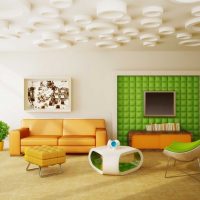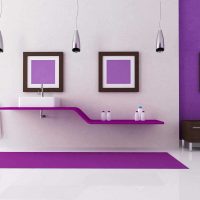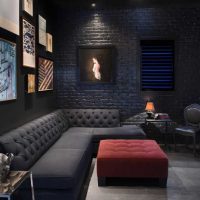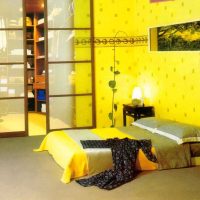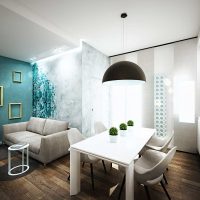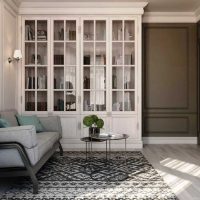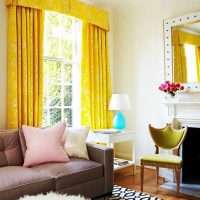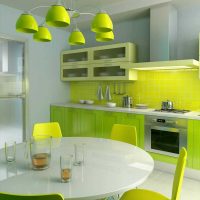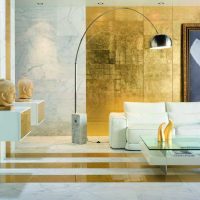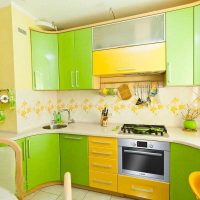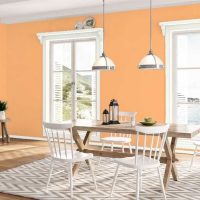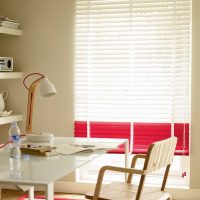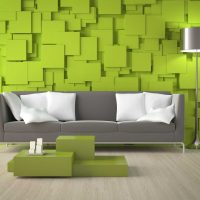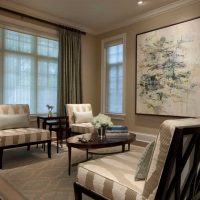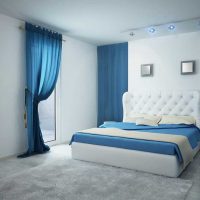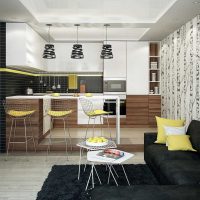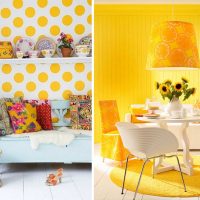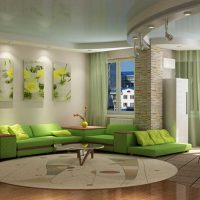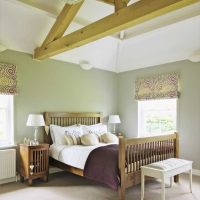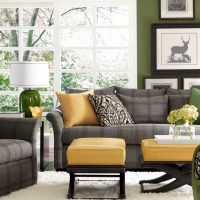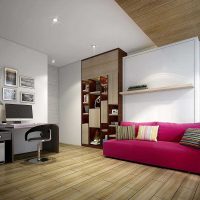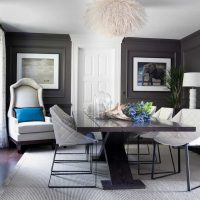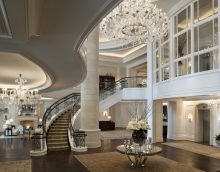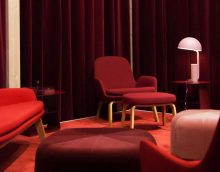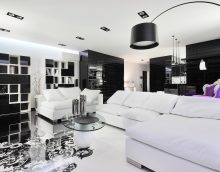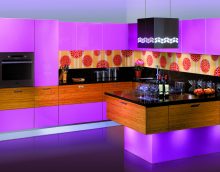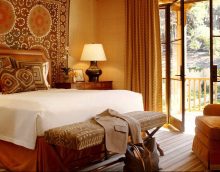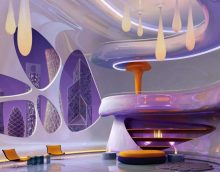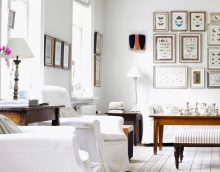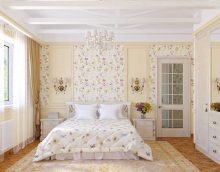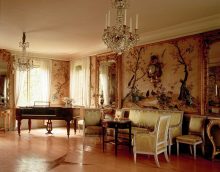Psychology of color in the interior
Color is a powerful tool for influencing the psyche of people. One shade is annoying and the other inspiring. When arranging a home, the psychology of color in the interior is necessarily taken into account. He can give joy and warmth or inspire boredom and despondency. To create a harmonious environment, you should carefully choose a palette.
When you design a home, you need to pay special attention to the details on which the overall impression depends. The role of color in the interior is difficult to overestimate. It has many characteristics and is capable of exerting various effects on people. When choosing a color scheme, the preferences of the owners of the house or apartment are necessarily taken into account. Warm and cold shades can affect the mood, emotions, general condition of a person.
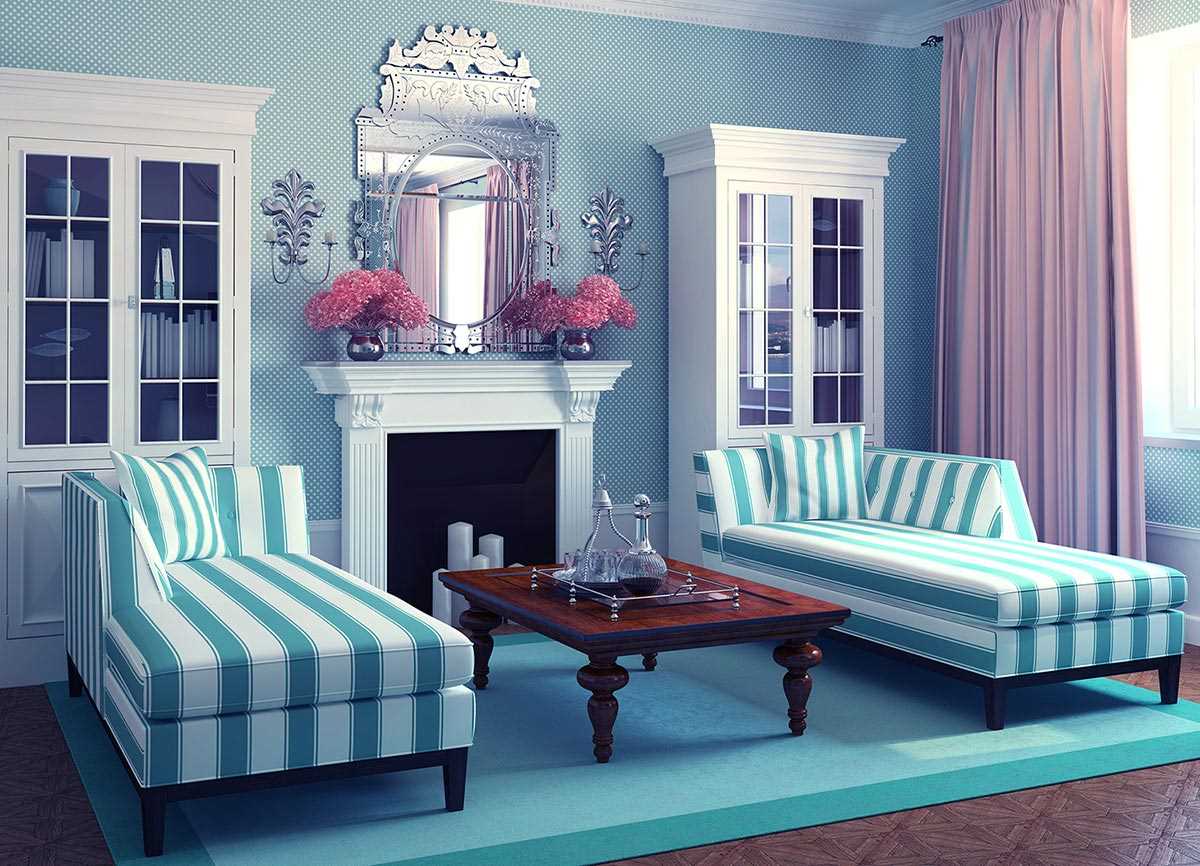
When choosing a color, you should consider your own preferences
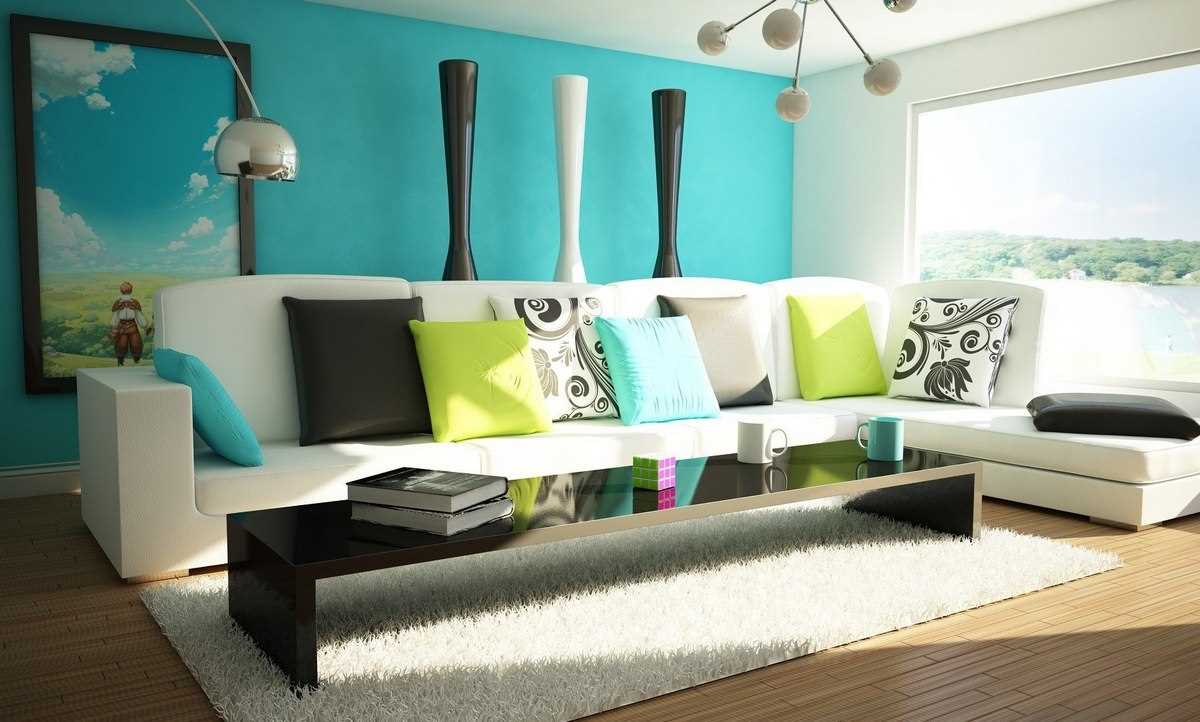
Light shades will evoke positive emotions.
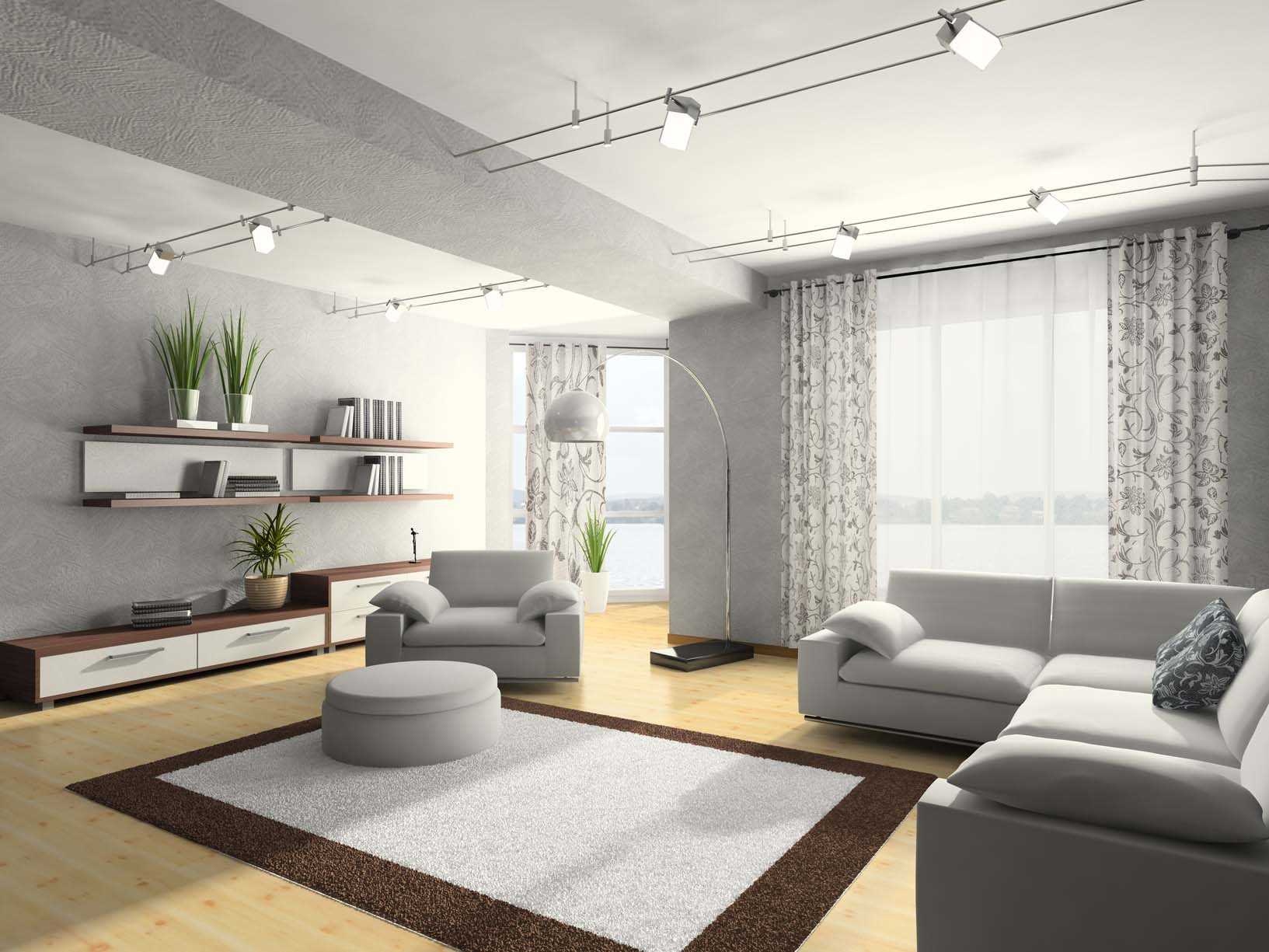
Gray color will give peace
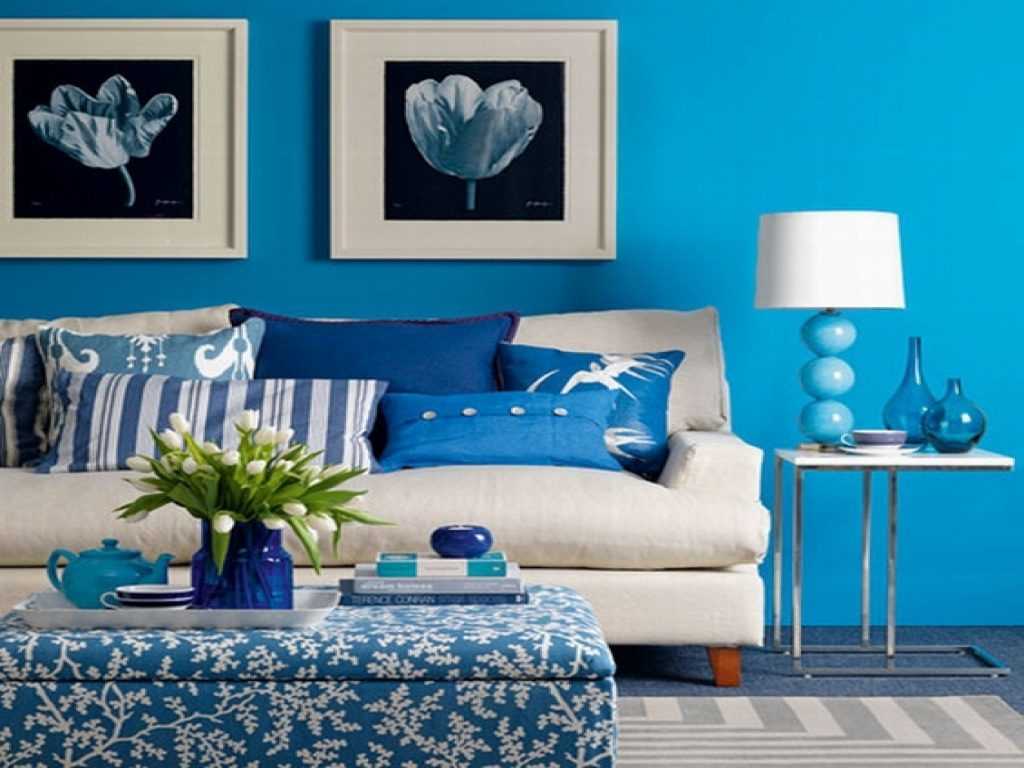
The mood may depend on the color, so you should be careful when choosing a color.
The effect of color on humans
|
Colour |
Symbolism |
Psycho-emotional impact |
|
Red |
Power |
Energizes |
|
Orange |
Energy, joy |
Improves mood |
|
Yellow |
Happiness |
Warms up |
|
Green |
Hope, youth |
Promotes relaxation |
|
Blue |
Dreams, fantasies |
It has a relaxing effect. |
|
Blue |
Philosophy, wisdom |
Establishes a trust relationship |
|
Violet |
Harmony of opposites |
Activates creativity |
Warm colors are perceived more gently, create a cozy atmosphere in the home. Cold tones soothe, give peace. Neutral options can perform different functions.
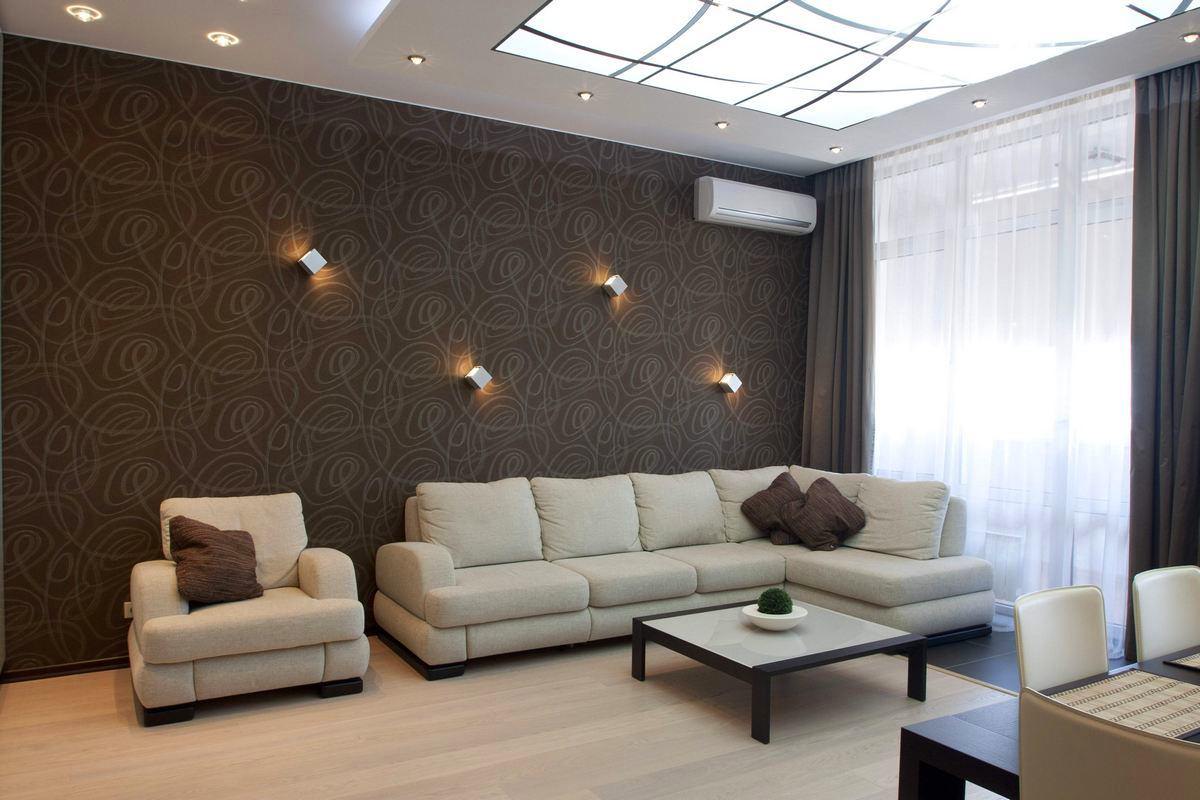
Warm shades create a pleasant atmosphere.
Content
- 1 Energy and power of red color
- 2 Orange holiday in the interior
- 3 Cheerful and active yellow
- 4 Elegant blue color
- 5 Refinement and freshness of blue color
- 6 Green Versatility
- 7 Brown gives safety and comfort.
- 8 Purple color in the interior: psychology
- 9 Pink is the color of transformation
- 10 White
- 11 The black
- 12 Gray color in the interior: psychology
- 13 The choice of color for interior rooms
- 14 Bedroom
- 15 Living room
- 16 Kitchen and dining room
- 17 Bathroom
- 18 Cabinet
- 19 Children
- 20 Conclusion
- 21 Video: The combination of colors in the interior
- 22 50 photos of ideas for combining colors in the interior:
Energy and power of red color
He always attracts attention. It is the color of passion and love. When used carefully, it bestows optimism, energy. Red elements tire troubling individuals. This solution is suitable for active people who prefer to always be in the spotlight. A red accent warms up the blue and white components. Wine, burgundy, coral varieties look great in apartments, make the atmosphere luxurious and unique.
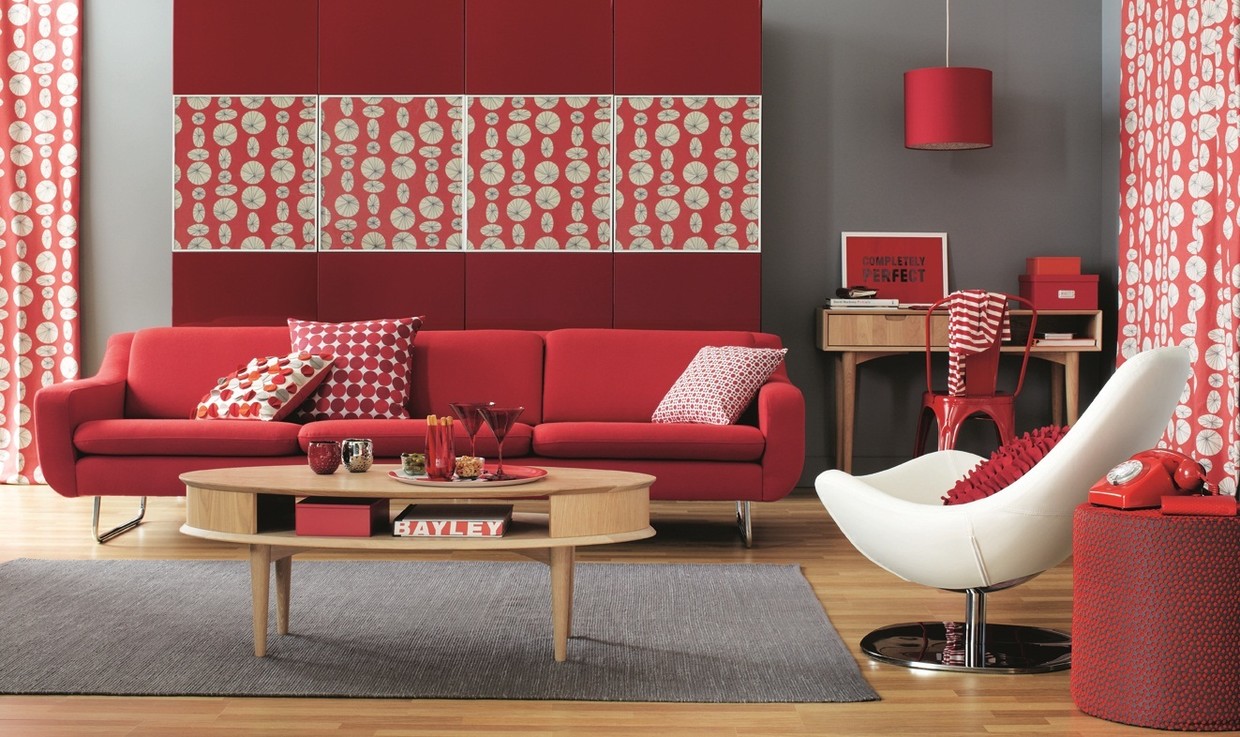
Red always attracts a lot of attention.
Orange holiday in the interior
A life-affirming color is associated with fireworks, a sunny beach. It stimulates the brain, gives a sense of celebration. Light, blinding tone will create a comfortable atmosphere, bring a sense of vigor to the room.
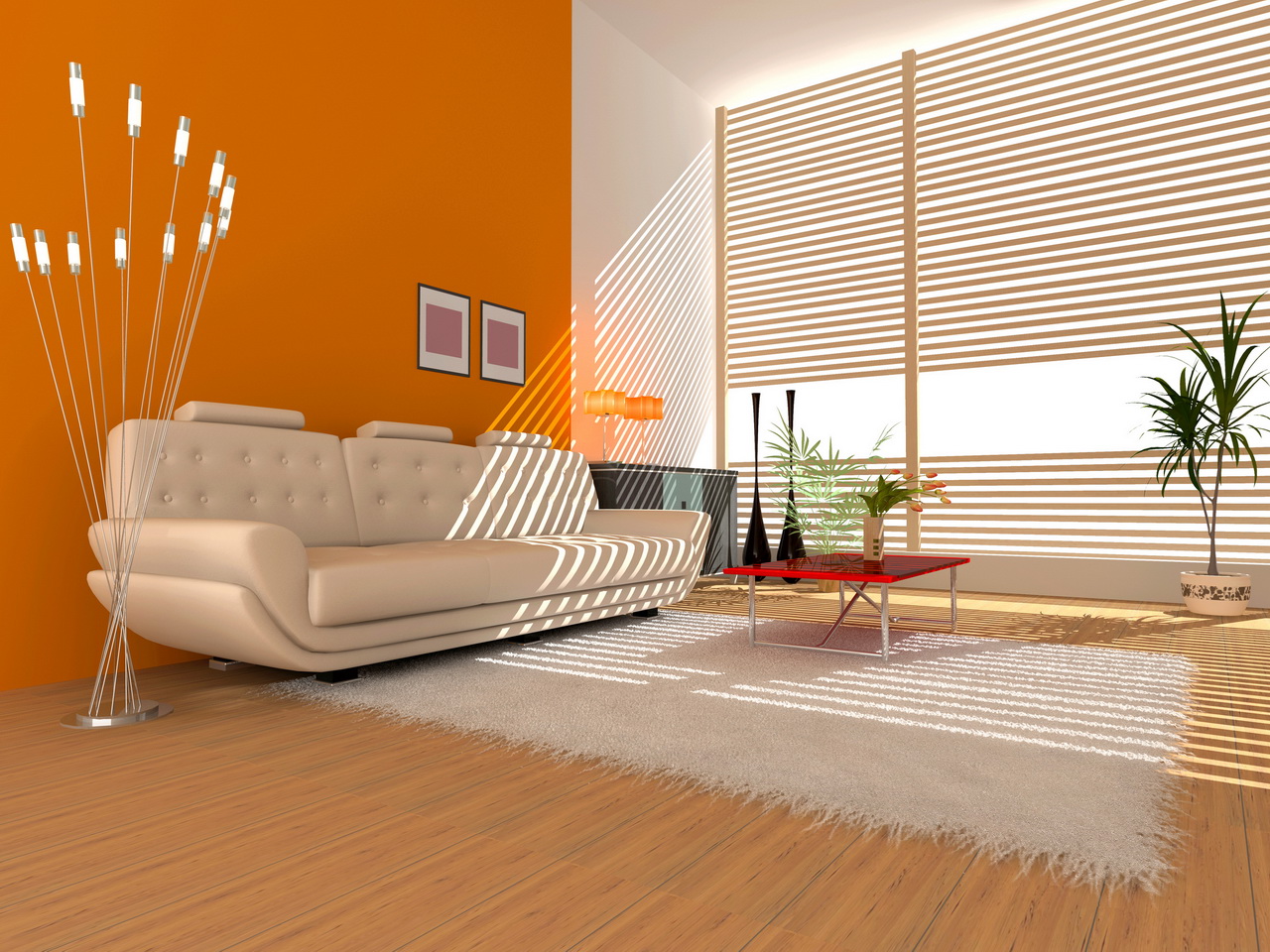
Orange color will always give joy and festive mood
Cheerful and active yellow
This color is invariably associated with solar warmth. It brings a positive mood. Yellow shades fill the space with solar energy. They tone and refresh. The yellow psychology in the interior is necessarily taken into account in order to choose the right gamma for the room. Lemon, peach and beige variations look amazing.
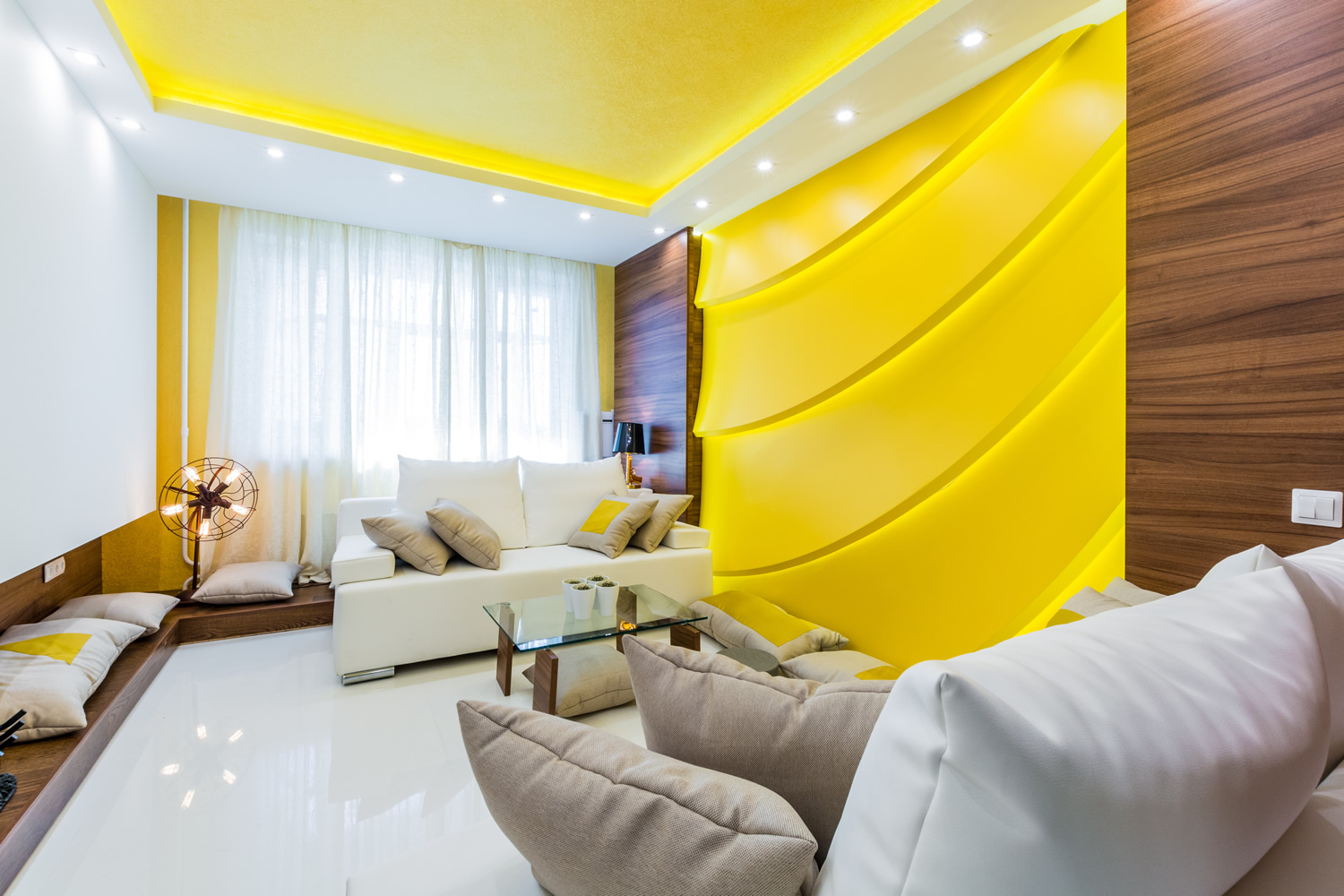
Yellow color will give joy and smile
Elegant blue color
He will give peace, make the space light and airy. This is the color of cleanliness, relaxation, coolness, but an overabundance in the room leads to family disagreements. A heavenly hue helps you make informed decisions.
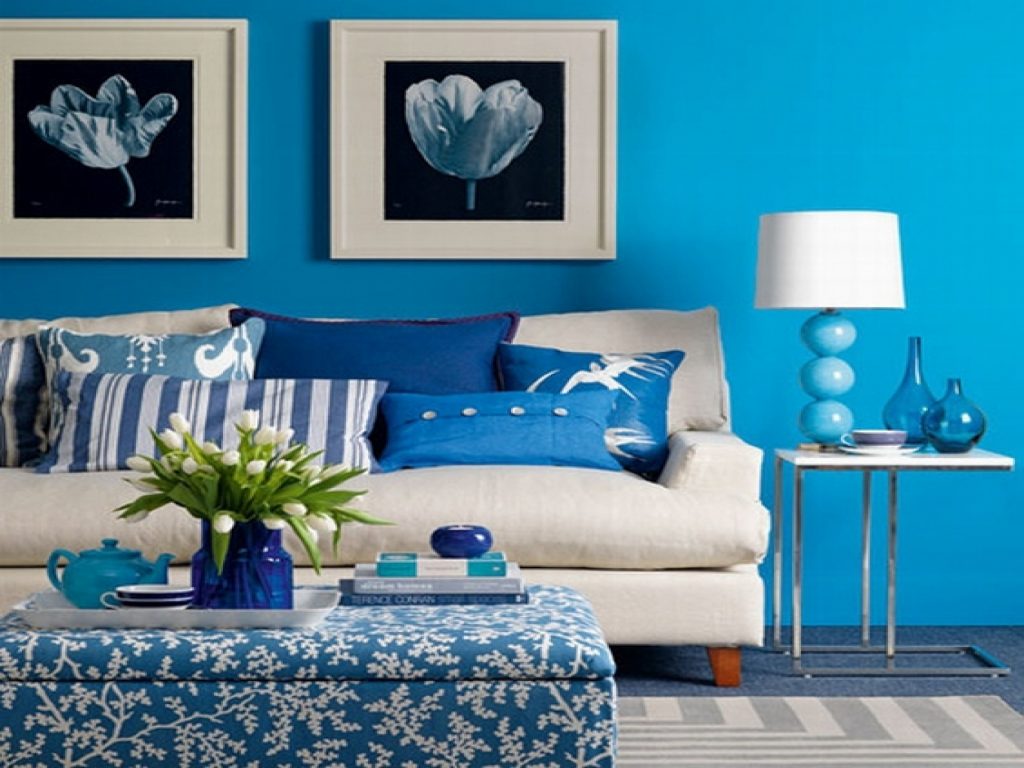
Blue color will help you make important decisions.
Refinement and freshness of blue color
It embodies calm and serenity, gives the apartments lightness and depth. The blue bedroom is suitable for people living at the fast pace of a modern city. The color of the mysterious night will calm, let you relax. It is associated with the sea surface, in moderation, improves performance, but an overabundance in the setting has a bad effect on the human condition.
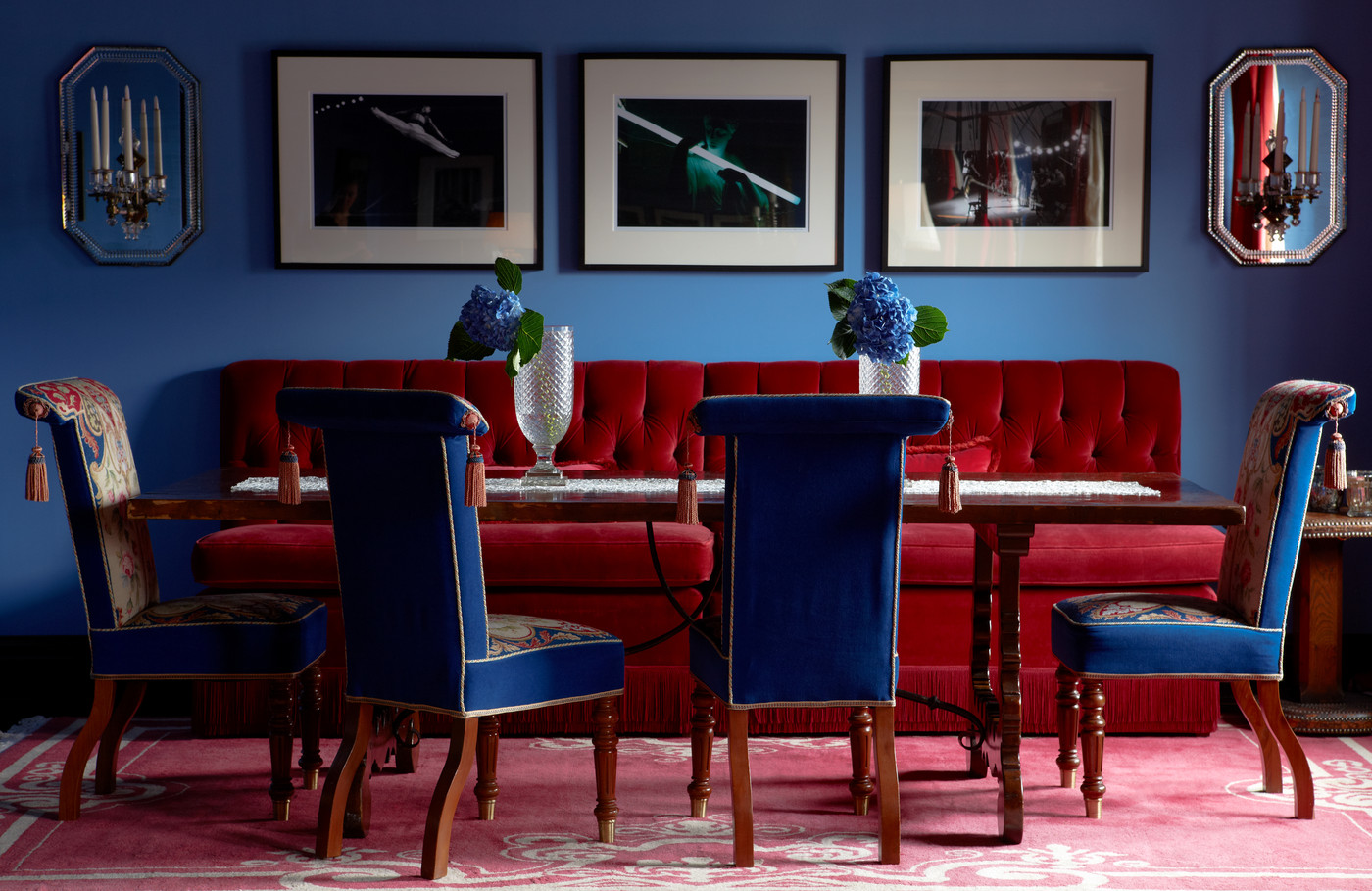
The combination of blue and red in the interior looks exquisite
Green Versatility
The needles are calm and balanced people. The green color in the interior is of particular importance, it symbolizes abundance and prosperity, calms and reassures. Bright solutions are suitable for active people looking for new experiences. Conservative personalities choose a dark green palette that gives strength, helps in undertakings, and sets up for success.
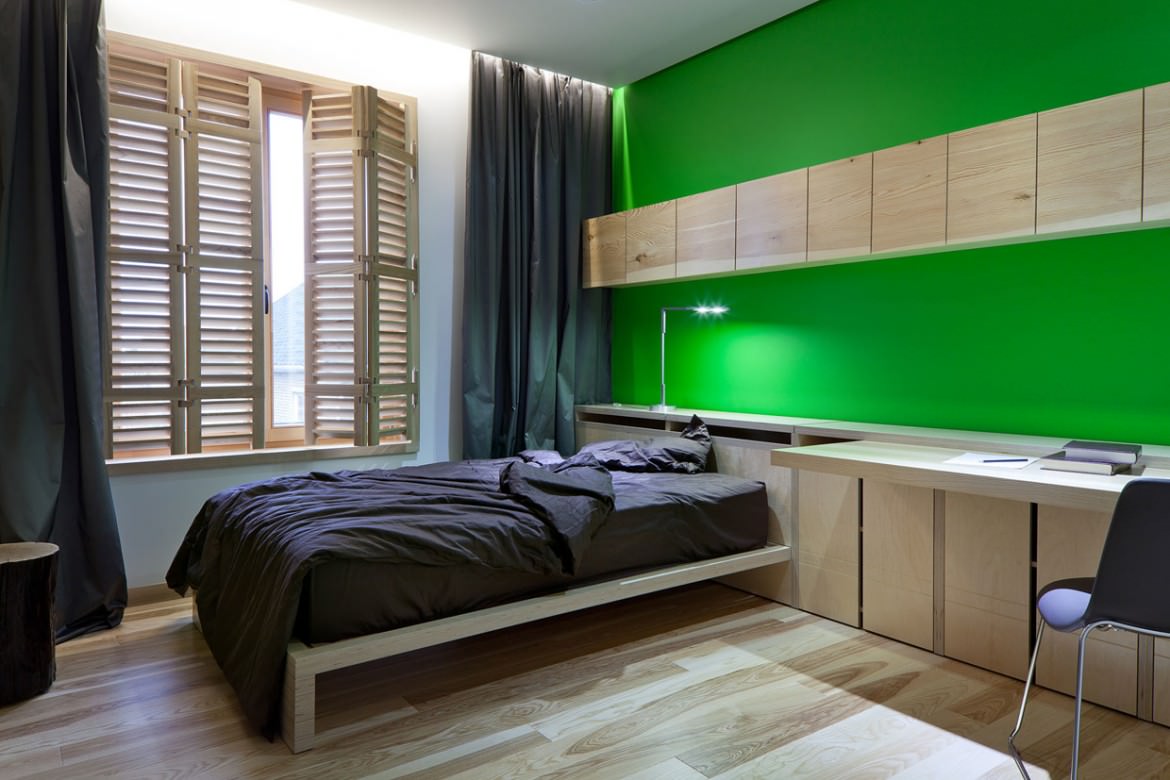
Light shades suitable for active people.
Brown gives safety and comfort.
Reliability color is loved by people who are used to achieving their goals. It will not allow you to waste time uselessly, will contribute to the concentration of forces. On the other hand, an overabundance of such a component causes fear, depression.
Warm colors harmoniously look in various combinations. The brown version is combined with the following colors:
-
maroon;
-
white
-
light green.
It personifies reliability. To create comfort and coziness in the room, thick chocolate and a sandy shade are suitable. To develop an individual design will help interesting combinations.
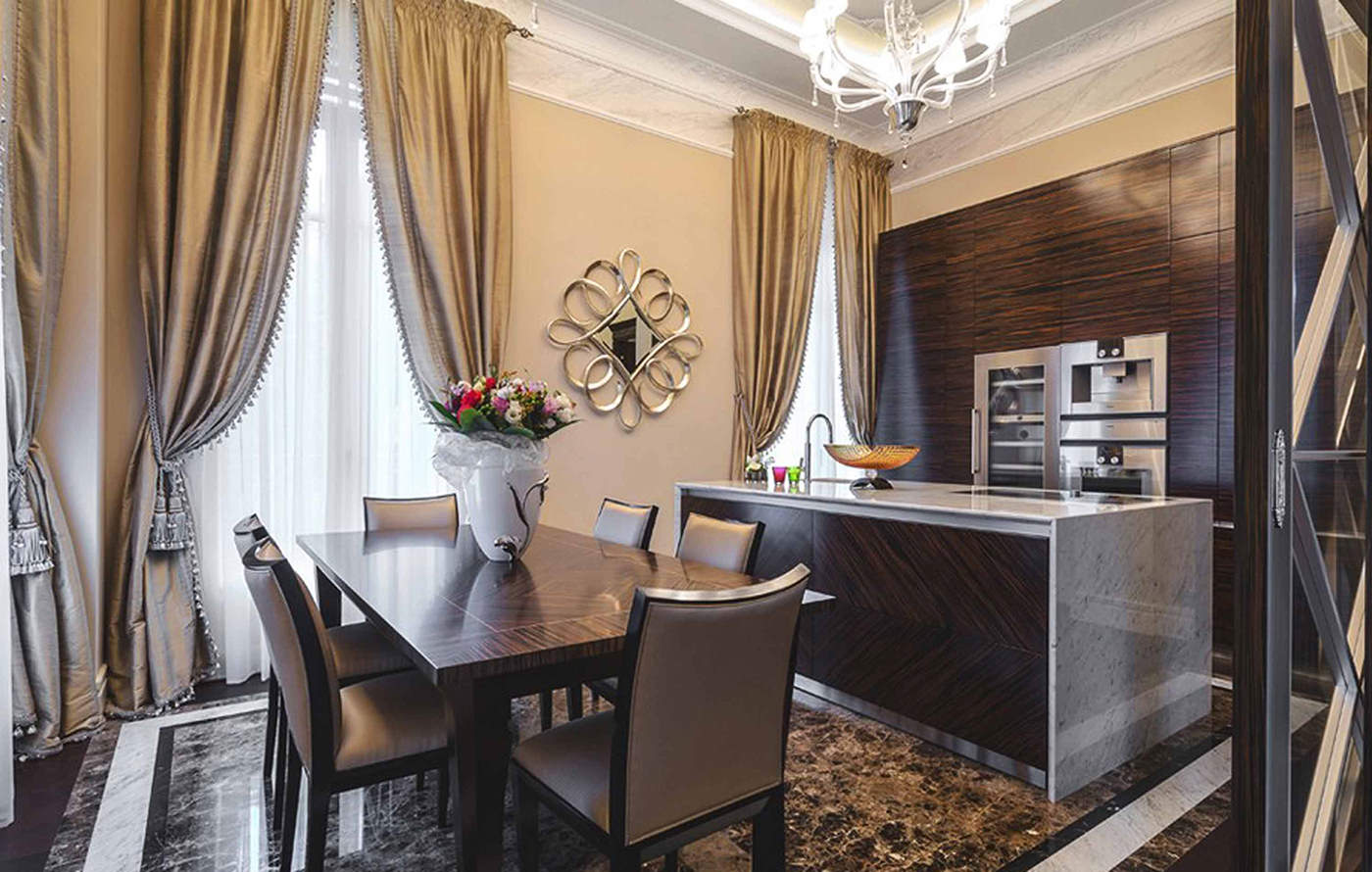
Brown is suitable for purposeful people.
Purple color in the interior: psychology
It is connected with emotions. The mystical violet background is associated with power, nobility. It sets up a person to solve complex problems. Violet tone symbolizes the strength of the spirit, inspires, promotes the disclosure of talents.
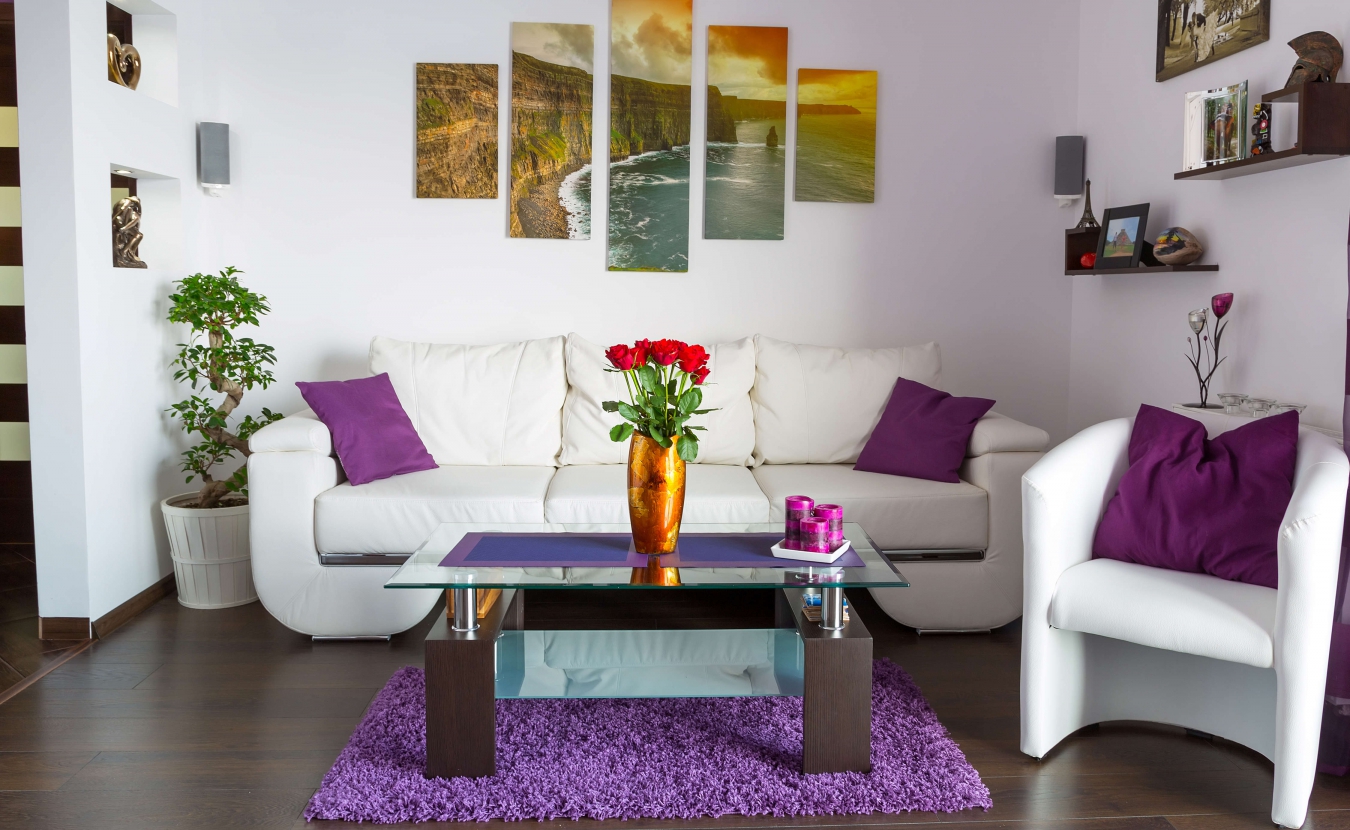
Violet color inspires
Pink is the color of transformation
A gentle and romantic choice. He is able to neutralize aggressiveness, relax, help get rid of negative thoughts, appropriate in children’s, in the kitchen. A large number makes the decoration cloying.
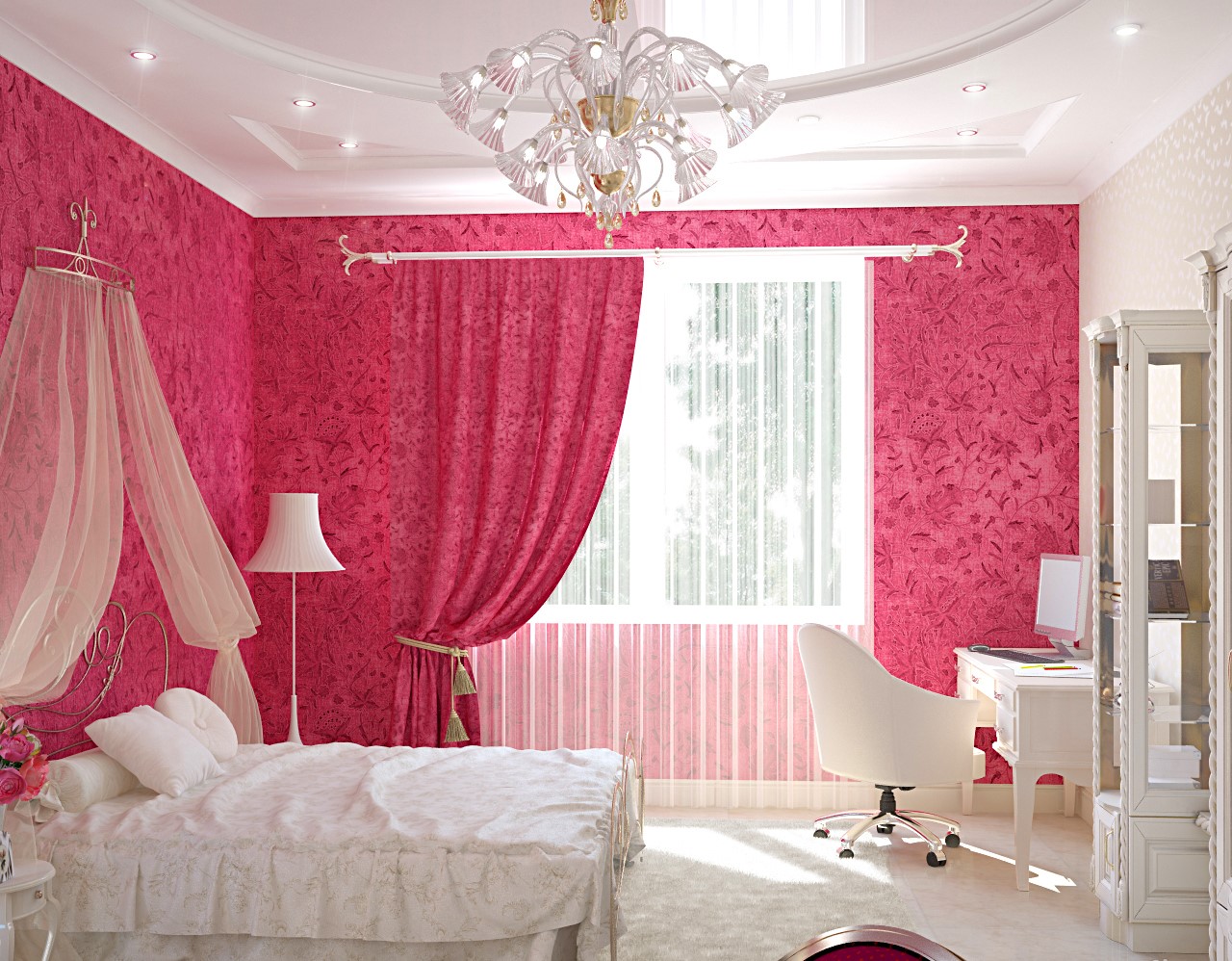
More often pink color is used in bedrooms
White
It symbolizes peace, purity, concentration. The psychology of white in the interior should be taken into account when designing. It energizes. An excessive amount of white indicates loneliness, emptiness, detachment. It serves as an excellent background, bright elements become more intense. White surfaces bring positive energy.
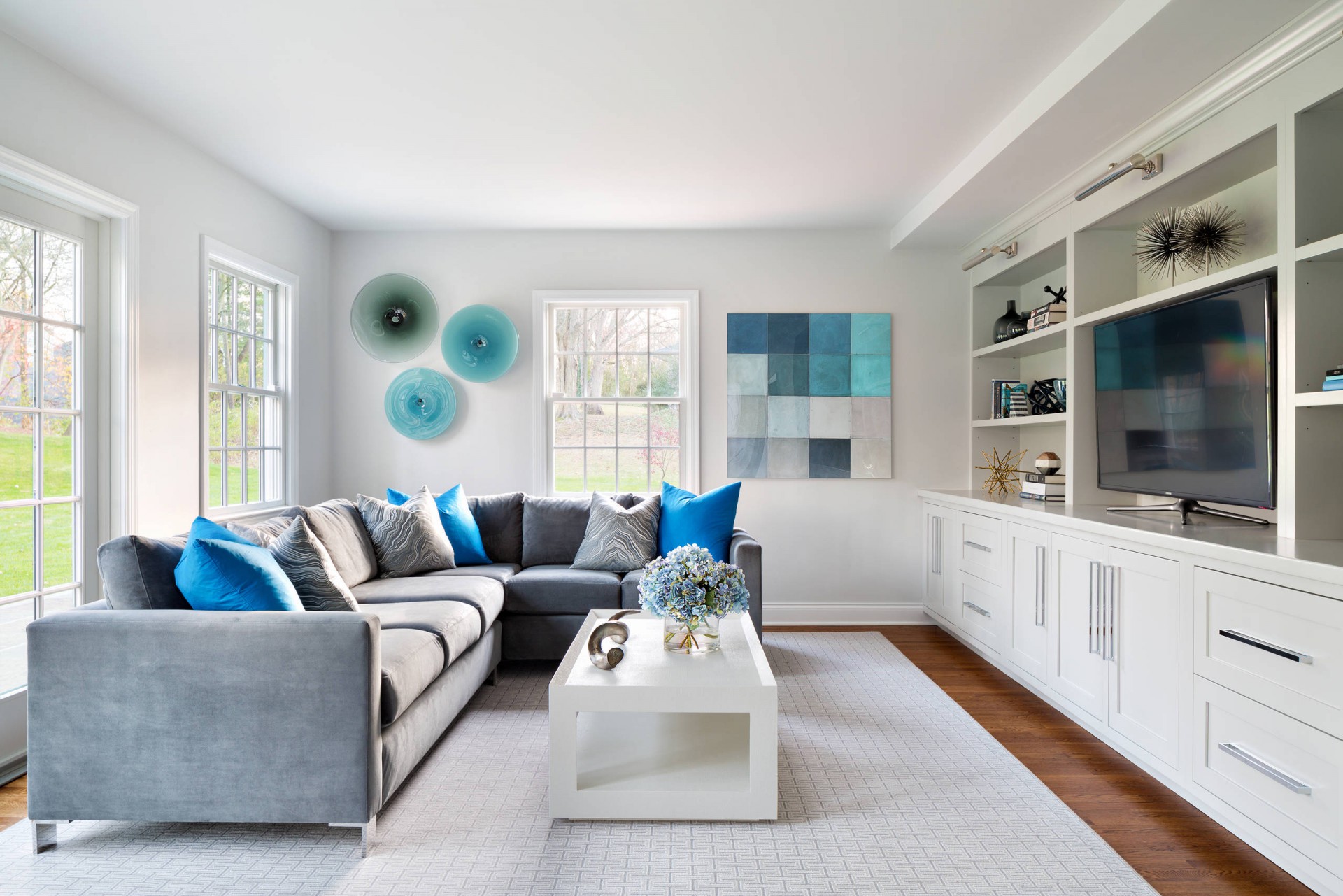
White color will give positive energy
The black
Black is a bold and innovative solution. It is used as a background. Do not be afraid of experiments, the black color is suitable for decorating the floor and ceiling. If successful combinations are found, he looks noble and respectable. This view will help to identify the borders, but do not use black in large quantities. It causes negative emotions.
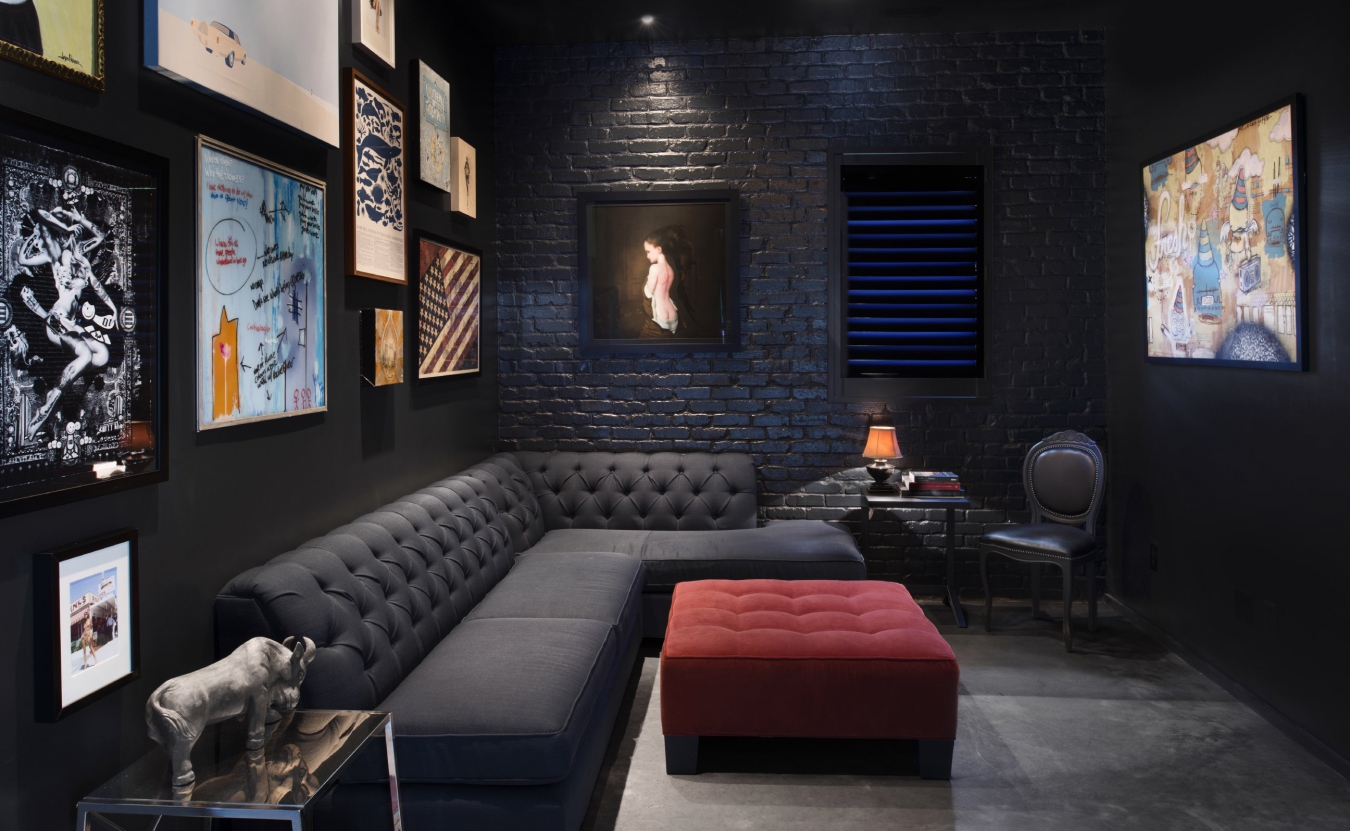
Black color looks noble and respectable.
Gray color in the interior: psychology
He will cope with strong emotions. The meaning of gray in the interior is different. A person becomes more balanced, able to look at difficulties with a clear head. Color, combining opposites, means realism and sanity. Its overabundance causes boredom and despondency. Correctly selected shades of gray look great in modern houses and apartments with lilac and pink elements.
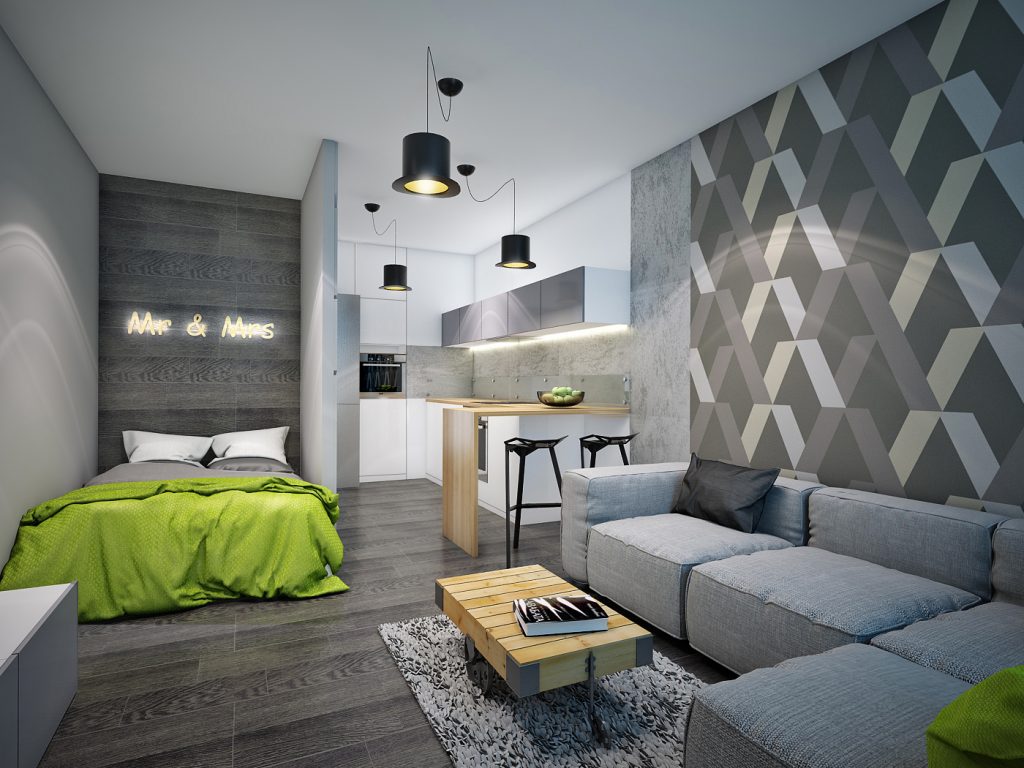
Gray color looks very good in modern style
The choice of color for interior rooms
The design of each room must be carefully designed. The psychology of color is also based on a combination of shades. Use options:
-
Analog combinations involve the selection of close tones. One usually plays the role of the background, and the second will act as an accent.
-
Harmonious combinations can consist of different variations.
-
Contrast tandems are too bright, quickly start to bother.
-
Monochromatic combinations allow the use of several shades of the same color. To make this decision not gloomy, you need to add red or orange accessories.
When choosing take into account the age and nature of the residents. Be sure to listen to your preferences. When selecting a gamut, attention is paid to intensity, depth, and saturation. The overall impression is also affected by the shape and size of the room.
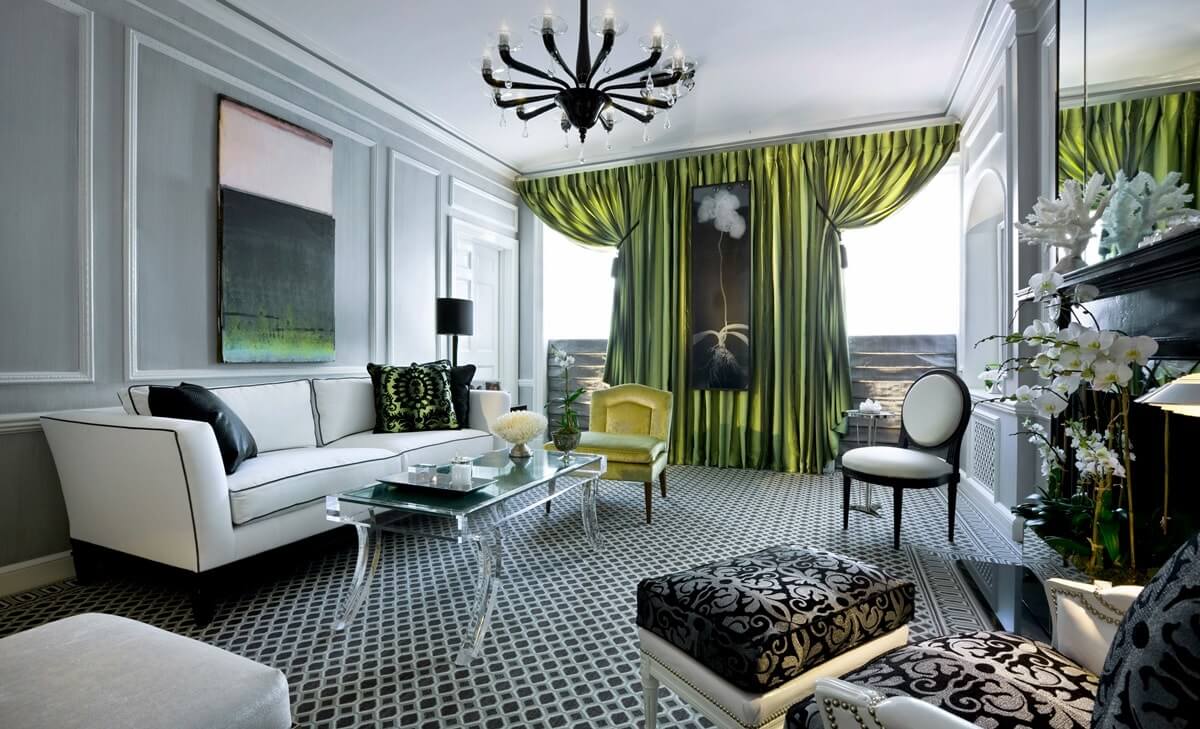
When choosing a color, you should rely on your preferences
Bedroom
For the holiday area, you should not pick up bright colors. Pastel variations soothe, bring harmony and warmth. Blue is great for the bedroom, but to compensate for the coolness, you should dilute the interior with a warmer color. Green elements are often chosen for her, which fill with new energy. The purple color in the interior of the bedroom has different meanings, depending on the overall design of the room and the palette used. He is able to create a mysterious atmosphere. Do not make out the apartments in yellow and red versions. Brown details with pink color harmoniously fit into the atmosphere.
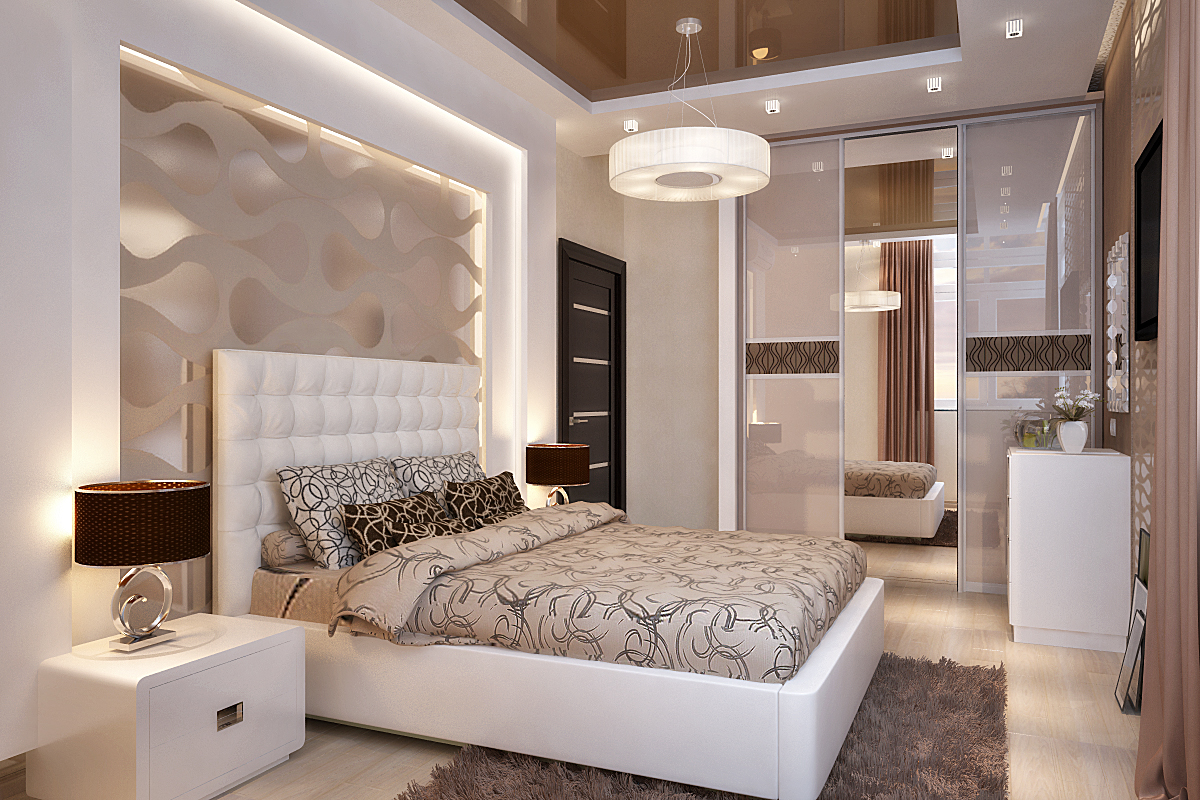
In the bedroom, you should choose warmer shades.
Living room
For the main premises of the home choose the warm part of the range. It will create a friendly atmosphere where the whole family and guests gather. Yellow-green options look interesting. Blue details will fill the room facing south with coolness. Peach and coffee surfaces will become the backdrop for other items.
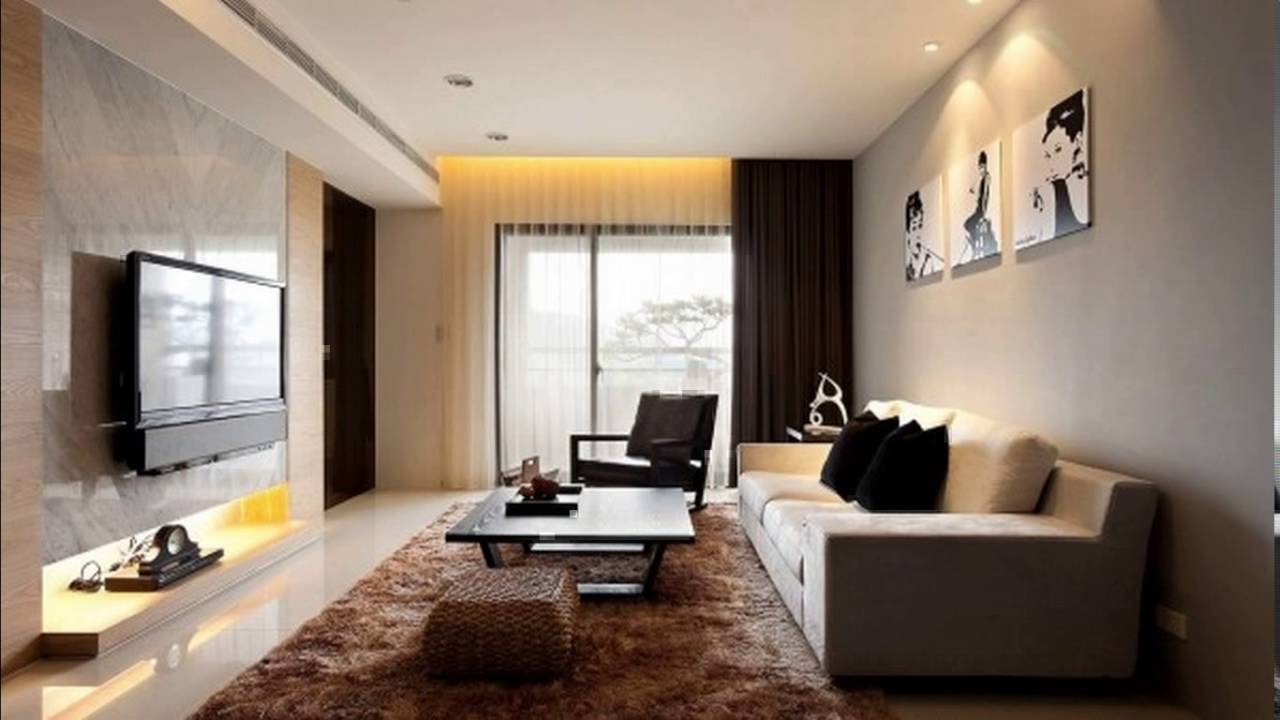
The living room in coffee color will look very good.
Kitchen and dining room
Different colors are used in cooking rooms. Gray elements and glossy surfaces complement the decor. Do not use blue color in the dining area. Looks great red, green tones, which cause appetite, have a positive effect on the digestion process.
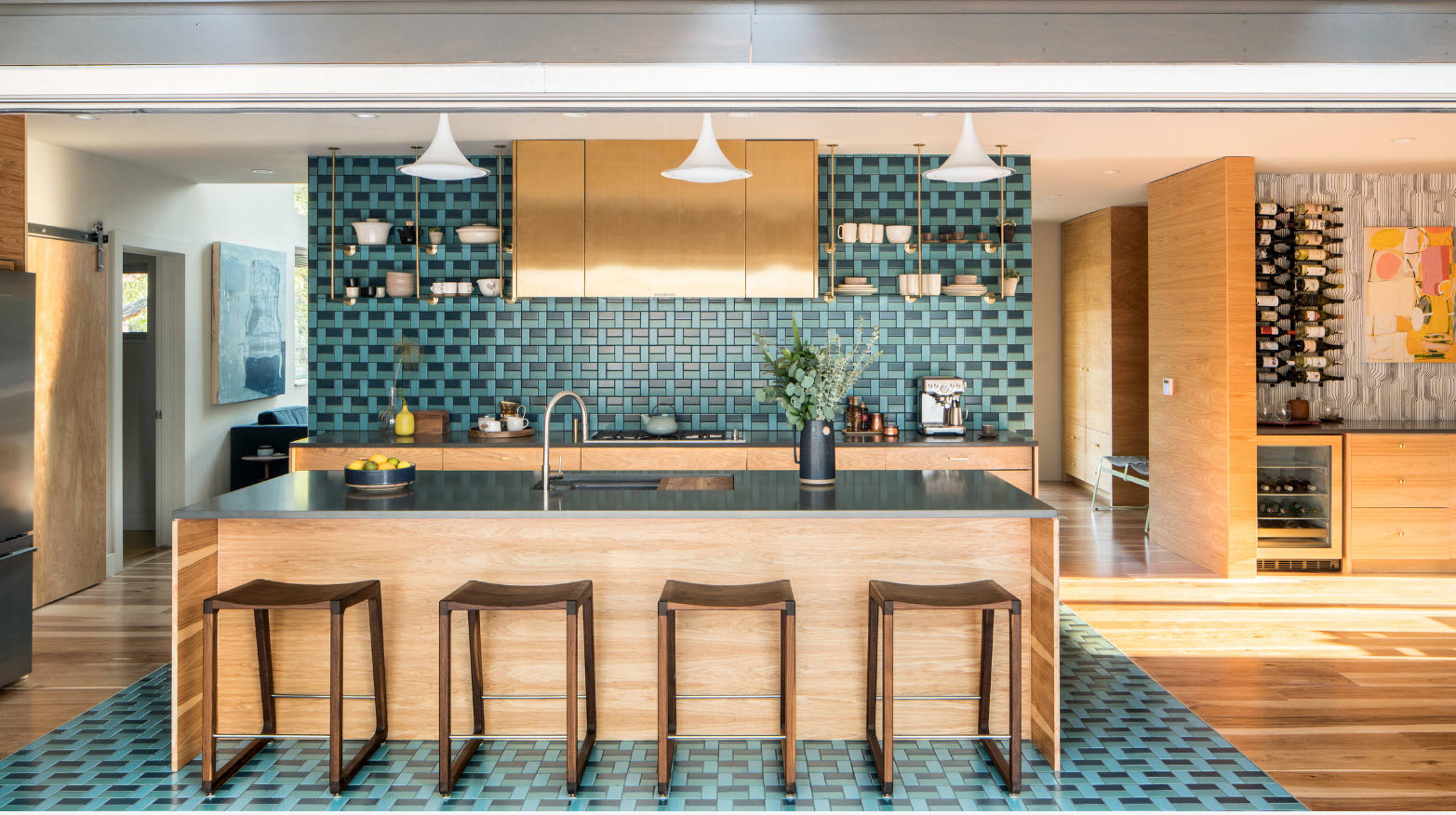
Glossy surfaces will look very beautiful in the kitchen
Bathroom
In the room for hygienic procedures, blue, purple, white colors are more common. Warm modifications will bring home comfort to the bathroom. The right combination will achieve balance.
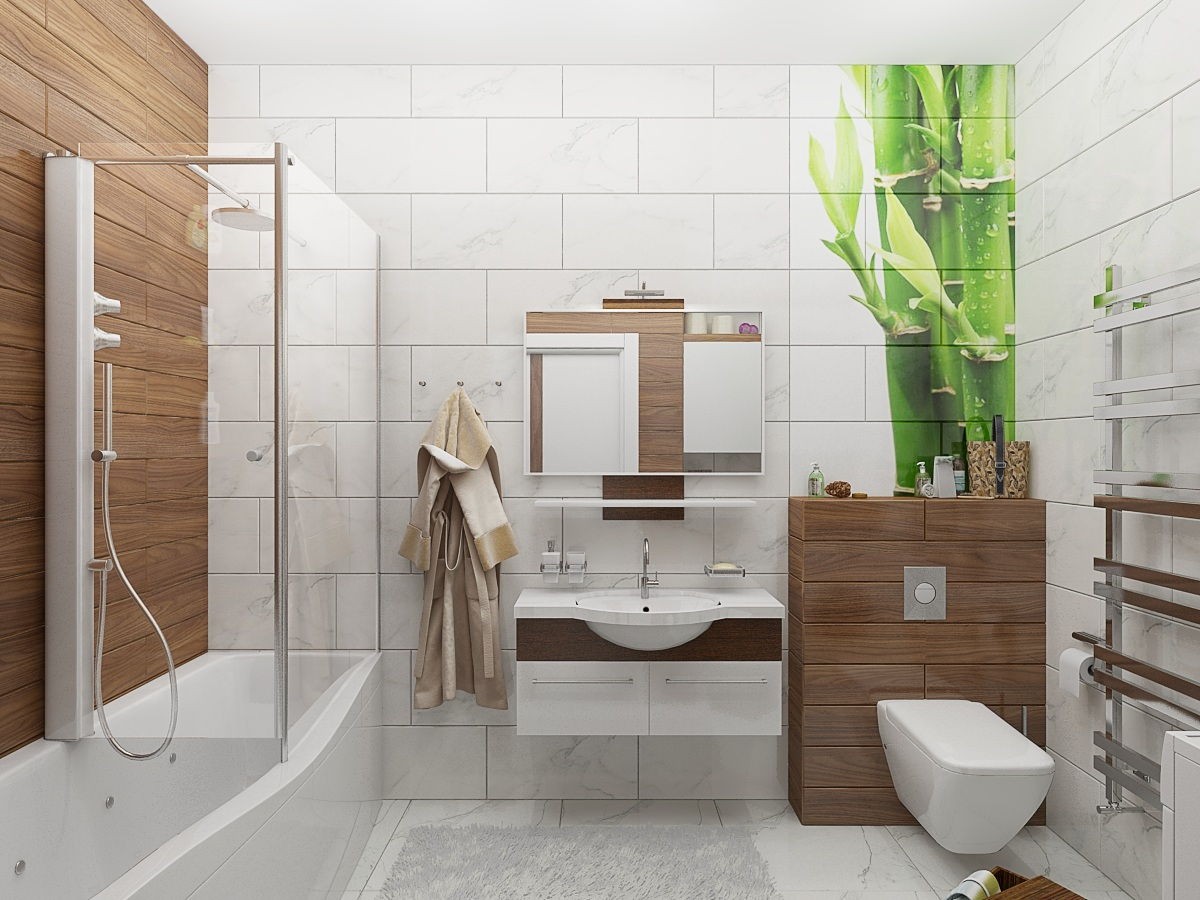
Usually for the bathroom use white color
Cabinet
For the working corner, colors that stimulate mental activity are chosen. For these purposes, an orange tone is suitable. It will help to focus on work or study. Brown color does not cause irritation, so the cabinets are finished with wood. Green and blue contribute to the relaxation of the nervous system. Black and violet surfaces cause a feeling of fatigue.
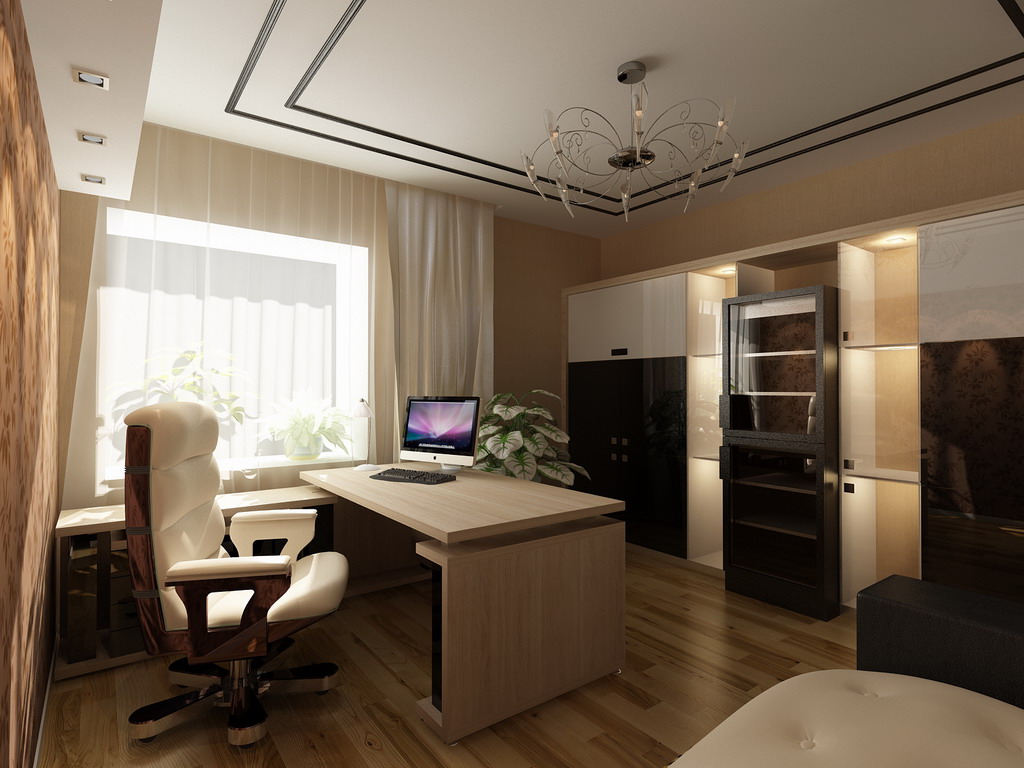
For the working corner choose colors that stimulate mental activity
Children
It is not easy to arrange a room for a child correctly. When choosing a color scheme for a nursery, the tastes of a small tenant are also taken into account. It requires creating an atmosphere conducive to learning and creativity. The color for the nursery is chosen according to the age of the child. If necessary, it easily divides the room into functional sections. In a small room, they do not use aggressive red color, but pick up pastel colors with bright accessories.
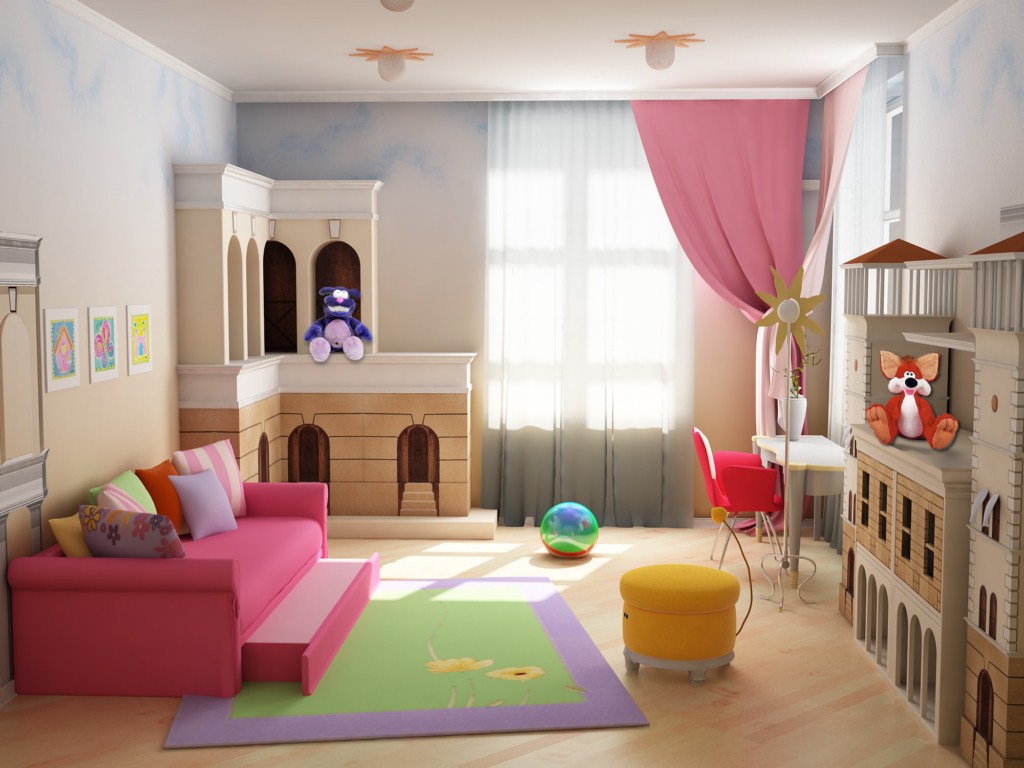
Choosing a color in the children's room is based on the preferences of the child
Conclusion
The psychology of color helps to understand the effect of various decisions on the feeling of comfort. She gives recommendations on the use of different tones in rooms.One and the same option is often perceived by people differently, which must be taken into account when arranging a home.
Video: The combination of colors in the interior
